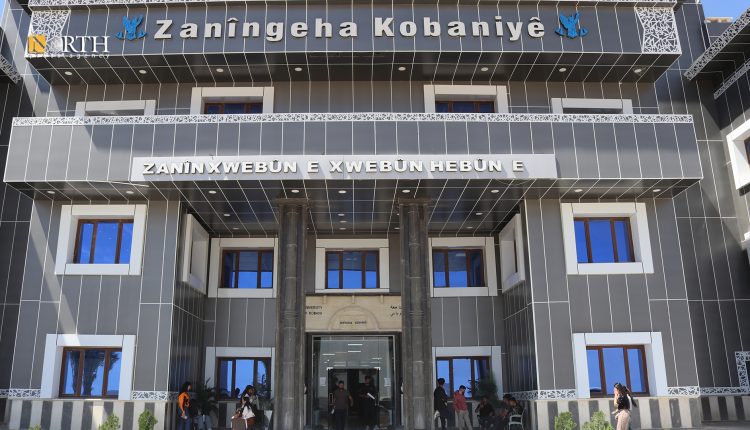University of Kobani announces academic expansion for coming year
KOBANI, Syria (North Press) – The University of Kobani in northern Syria announced on Thursday the opening of several new colleges and academic departments for the 2025–2026 academic year.
The process includes new postgraduate programs, as part of a broader effort to enhance higher education opportunities across North and East Syria.
Abdul Karim Aloush, Vice President of the University for Graduate Studies and Scientific Research, confirmed the expansion in a statement to North Press on Thursday.
Alloush said that new departments in Architecture, Agricultural Engineering, and Social Sciences will be introduced, alongside new master’s degree specializations.
The decision follows a university council meeting held on April 24, 2025, attended by university leadership, co-presidencies of colleges and institutes, academic affairs officials, and student representatives.
According to Aloush, the initiative aims to provide more university seats for students from Kobani and other areas across North and East Syria, as well as for students from outside the region.
The expansion is also intended to strengthen the university’s academic infrastructure by offering postgraduate degrees in key disciplines.
Among the newly approved graduate programs are Master’s Degrees in Business Administration, Educational Sociology, Arabic Literature, English Literature, and Law, as well as the launch of a PhD program in Kurdish Language and Literature.
In addition, the university will reactivate its language institute, expanding instruction beyond English to include Arabic, French, and Kurdish in the upcoming academic year.
Currently, the University of Kobani enrolls approximately 1,100 students. With the new departments and programs, it is expected to accommodate up to 2,000 students in 2025–2026.
Aloush emphasized that the expansion is designed to meet the evolving needs of society and institutions, while also providing better employment prospects for graduates.

